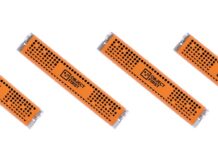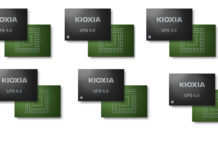Backblaze, which uses SSDs as boot drives for its disk-based storage servers, has produced its latest SSD annualized failure rate (AFR) report. Restricting its stats to drives with more than 10,000 days of use and to statistics with a confidence interval of 1.0 percent or less gets it a table with three entries:

Its overall HDD AFR is 1.64 percent, measured across 226,309 drives and 20,201,091 drive days – considerably more reliable statistics. Its SSDs are more reliable with their overall 0.60 percent AFR. These relatively early SSD AFR numbers are tending to show a so-called bathtub curve, similar to disk drives, with new drives failing more often than young and middle-aged drives and the failure rate rising as drives become older:
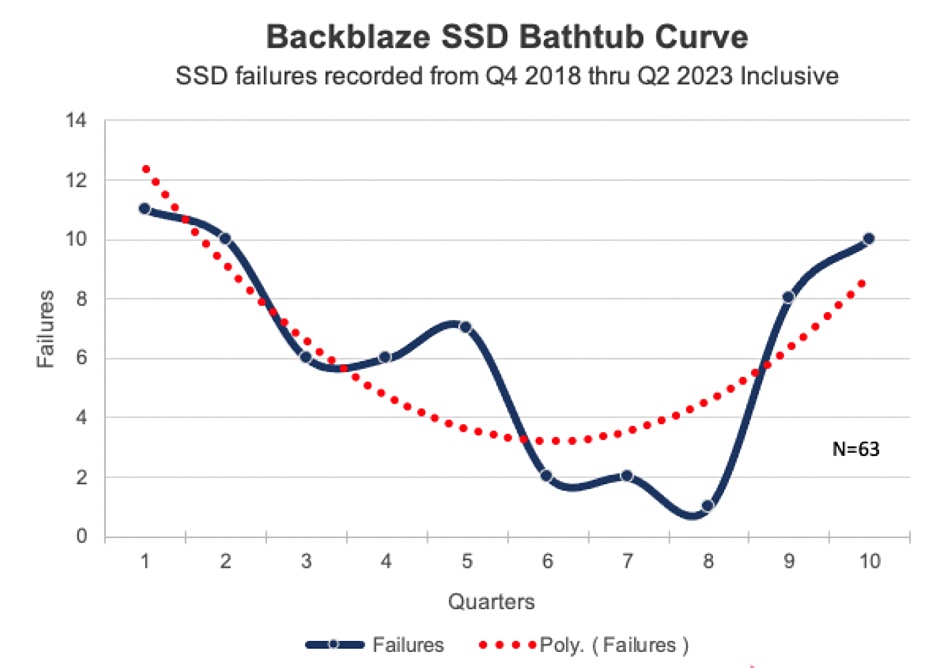
Report author Andy Klein writes: “While the actual curve (blue line) produced by the SSD failures over each quarter is a bit “lumpy”, the trend line (second order polynomial) does have a definite bathtub curve look to it. The trend line is about a 70% match to the data, so we can’t be too confident of the curve at this point.”
…
Connectivity cloud company Cloudflare, building on its collaboration with Databricks, is bringing MLflow capabilities to developers building on Cloudflare’s serverless developer platform. Cloudflare is joining the open source MLflow project as an active contributor to bridge the gap between training models and deploying them to Cloudflare’s global network, where AI models can run close to end-users for a low-latency experience. MLflow is an open source platform for managing the machine learning (ML) lifecycle, created by Databricks. Cloudflare’s R2 is a zero egress, distributed object storage offering, allowing data teams to share live data sets and AI models with Databricks. The MLFlow deal means developers will be able to train models utilizing Databricks’ AI platform, then deploy those models, to Cloudflare’s developer platform and global network, where hyper-local inference is deployed on the edge, to complete the AI lifecycle.
…
Data security, manager and protector Cohesity says Tata Consultancy Services (TCS) has joined its Data Security Alliance ecosystem. Cohesity’s Modern Data Security and Management platform bundled with TCS’ Cyber Defense Suite portfolio of security services and platforms, will bring customers a unified offering. The pair claim this is designed to improve visibility across the threat landscape, secure cloud activities, and enhance their cyber resilience. They say that joint customers will benefit from TCS’s domain knowledge as well as security solutions contextualized for specific industries such as finance, manufacturing, HLS, retail, utility, and more.
The Cohesity Data Security Alliance was founded in November 2022, and contains 15 members including BigID, Cisco, CyberArk, Mandiant, Netskope, Okta, Palo Alto Networks, PwC UK, Qualys, Securonix, ServiceNow, Splunk, TCS, and Zscaler. It will go down to 14 when Cisco completes buying Splunk.
…
Marco Fanizzi, Commvault’s SVP and GM International, and ex-VP EMEA, is leaving for a destination unknown after joining Commvault 4 years ago.
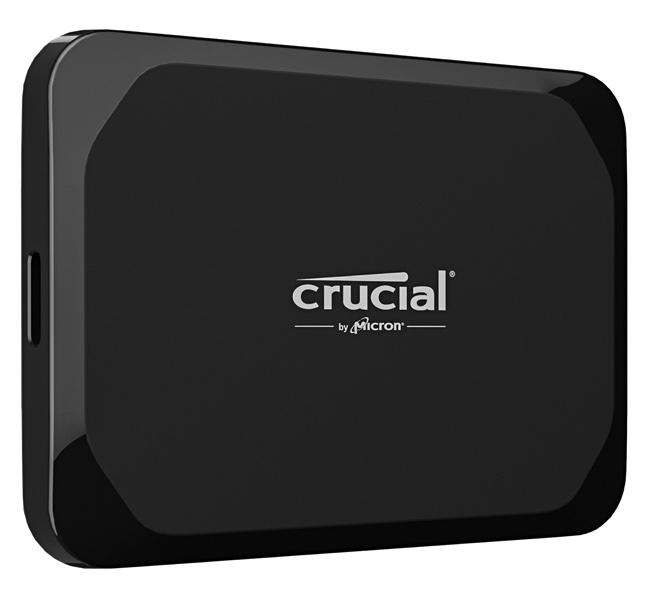
…
Micron’s Crucial consumer products unit has an X9 portable SSD in 1TB, 2TB and 4TB versions using Micron 176-layer QLC NAND, and a read speed up to 1,050MBps across its US-C interface. It has a three-year warranty period and comes in a 65 x 50mm plastic case. It is shock, vibration and drop proof up to 7.5 feet on a carpeted floor. The X9 works with Windows File History, Apple Time Machine and Acronis True Image.
…
Italy-based web3 decentralized storage startup Cubbit has won Leonardo, one of the world’s largest cybersecurity and defense companies with more than $14 billion in revenues, as a customer. For Leonardo, Cubbit storage means each file is encrypted, fragmented and replicated across multiple geographical locations and, in the event of an attack, it will always be fully reconstructable. The deal means Leonardo will reduce its data traffic, enabling a reduction in production and CO2 emissions. It says the distributed storage enables the construction of more efficient digital twins and it’s now ready for the storage of more archival data. That’s expected to grow threefold between now and 2026.
…
Gartner has a new Magic Quadrant; the Distributed Hybrid Infrastructure MQ. It deals with a set if suppliers who provide a standardized infrastructure stack that can run both in the public cloud and on-premises, either in datacenters or at the edge. The suppliers include public clods with versions of their software environment running on-premises, meaning Alibaba, AWS, IBM, Microsoft (Azure), Oracle, and Tencent Cloud, but not Google. A second supplier grouping consists on on-premises suppliers who have migrated their software to run in the public cloud: Huawei, Nutanix and VMware. More info here for Gartner customers. Here’s the MQ diagram:
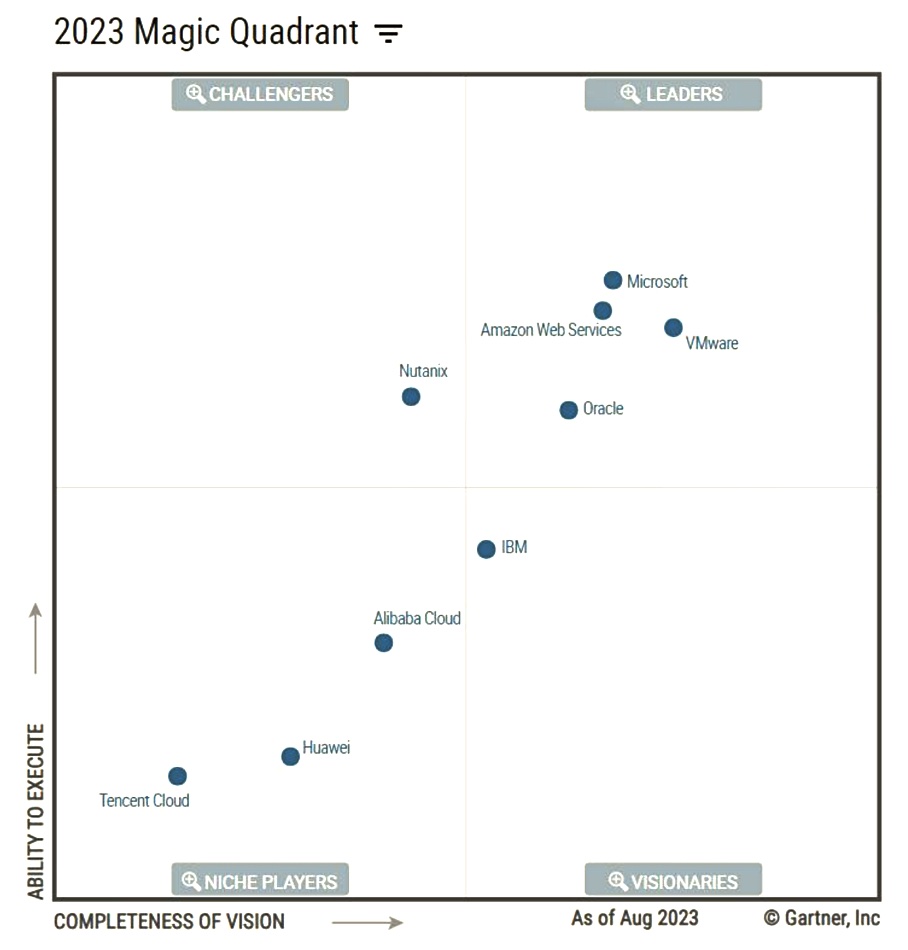
…
A “Beyond Big Data: Hyperscale Takes Flight” report from Ocient says that two-thirds of IT Leaders (67 percent) plan to replace their data warehouse provider this year. That’s a 12% increase from last year (59 percent). 58 percent say that database and data warehouse modernization is the top data and analytics-related IT budget priority over the next 12 to 18 months. 67 percent are actively looking to switch their organizations’ data warehouse infrastructure. 90 percent are currently, or in the next six to 12 months, planning to remove or replace existing big data and analytics technologies. Ocient says that, for the public sector to adapt to a hyperscale data landscape, it must adopt a strategic and holistic approach with technological upgrades. Translation: convert to Ocient.
…
Event analytics supplier Mixpanel has released a new native connector for Google’s cloud data warehouse BigQuery, making it easier for users to explore and gain insights from data. Event analytics captures every action (or event) that each user performs within a digital product, like an e-Commerce site or a ride hailing app. This granular view helps companies understand how different groups of users behave at various points during their experience. Mixpanel says this approach is faster and easier than traditional Business Intelligence (BI) tools that require data to be prepared and tabulated, with BI queries coded in SQL.
…
European CSP OVH Cloud has announced the integration of Nvidia A100 and H100 Tensor Core GPUs into its AI offering. That will allow it to complex instances for GPU workloads, large language model ML and HPC workloads.
…
According to Tom’s Hardware reporting about a a German Computerbase forum, Samsung has a coming T9 portable SSD offering 2GBps read/write speed through its USB 3.2 gen 2×2 interface. Samsung’s existing T7 portable drive runs at 10GBps. The T9 will come in 1TB, 2TB and 4TB variants with a 5-year warranty. Prices at French retailer PC21 are reportedly $133 for a 1TB T9 and $226 for the 2TB version – although we couldn’t find the drives on the PC21 website.
…
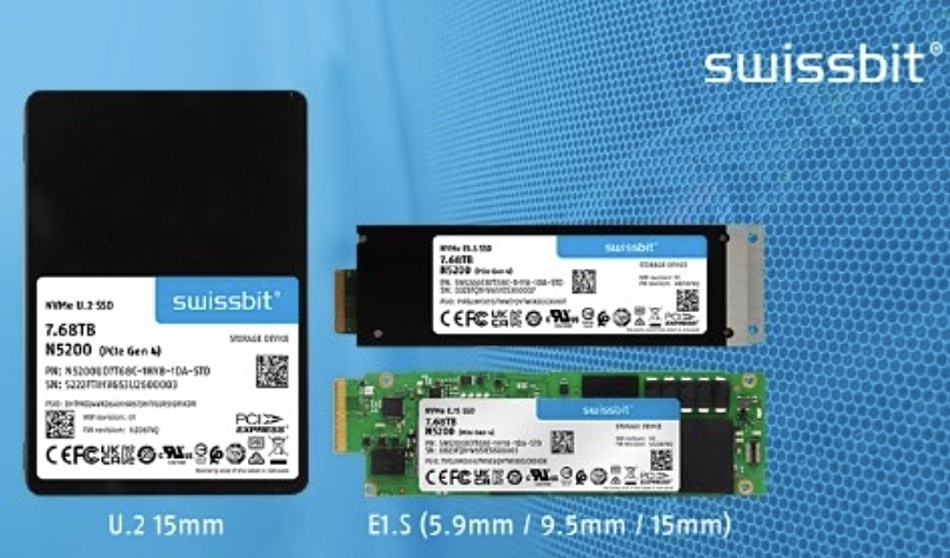
Swissbit has announced an N5200 Enterprise SSD in three Enterprise and Data Center Standard Form Factor (EDSFF) E1.S variants (5.9 mm, 9.5 mm, and 15 mm) in addition to U.2. Capacities range from 1.92 to 7.68 TB. It has a 4-lane PCIe and an NVMe 1.4 interface, with sequential data rates of up to 7,000 MB/s read and 4,200 MB/s write. Random reads and writes reach up to 1.35 million IOPS and 450,000 IOPS, respectively. Its endurance us at least 1 drive write per day over 5 years. The drive features TCG OPAL 2.01 and AES-256 encryption, Secure Boot, and Crypto Erase plus error correction and data protection mechanisms. It complies with the OCP Cloud Specification 1.0. Swissbit doesn’t identify the NAND type and supplier. For project and sales inquiries, contact the Swissbit Datacenter team.
…
Cloud-based block storage startup Volumez has hired itself its first CRO, Jason McKinney, who most recently was worldwide VP of public cloud sales at NetApp for the last 3.5 years. He helped launch three 1st Party Services during his tenure: Azure NetApp Files, AWS FSXN, and Google Cloud Volumes Service. He was at Salesforce and VMware before NetApp. Volumez recently completed a $20 million A-round funding and hired John Blumenthal as its Chief Product Officer. Previously he was VP Data Services in HPE’s storage organization. It’s clear that Volumez has a sellable product, even though it is only at an A-round funding stage, and is setting up an exec team of a kind more usually seen with C-round stage startups.

…
Destini Nova is joining WANdisco (the soon-to-be Cirata) as the senior director of Alliances and Business Development, and will be focused on building strategic partnerships and driving business growth delivering value to customers. WANdisco says she is thrilled to be working for an organization under the dynamic leadership of Stephen Kelly again, grateful for the opportunity, and looking forward to this new journey. She comes from being director Global Alliances at Sage and is based in Seattle.





